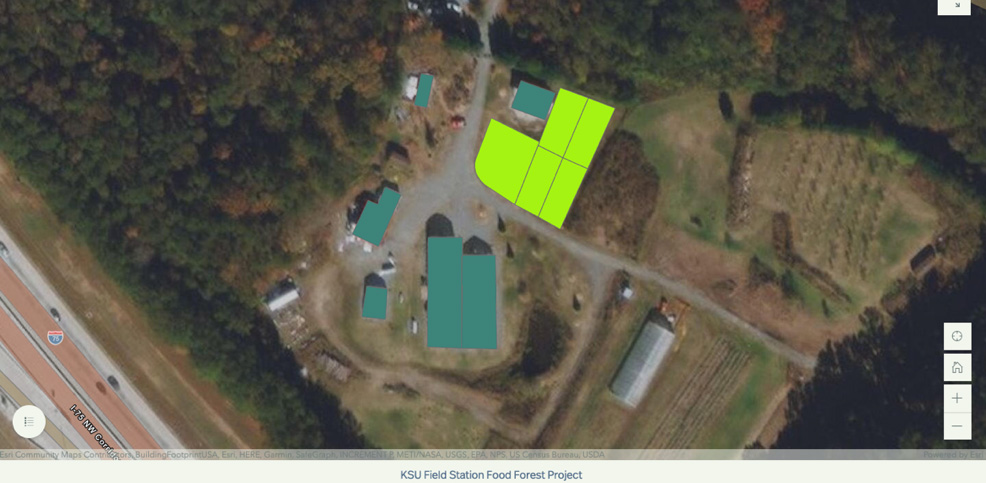-
Applied and Integrated Crop Science
Compared to high-yield industrial production, organic farming practices have been
shown to yield produce with higher nutritional value. Additional benefits, such as
a longer shelf life, of organic production have not been explored systematically,
and research on the optimization of small-scale, organic farming practices is sorely
needed due to a rapidly increasing demand for organic produce.
At the KSU Field Station, the KSU PlantEcoFizz lab is integrating physiological measurements of crops grown under various conditions
with their physical (thermal), chemical (sugar, nutrients), and biological (leaf &
root microbes) characteristics. In collaboration with Dr. Sathish Gurupatham from the Department of Mechanical Engineering, Dr. Mario Bretfeld and students are currently working to understand whether organic farming translates
into differences of the biochemical and thermal properties – and thus the shelf life
– of tomatoes.
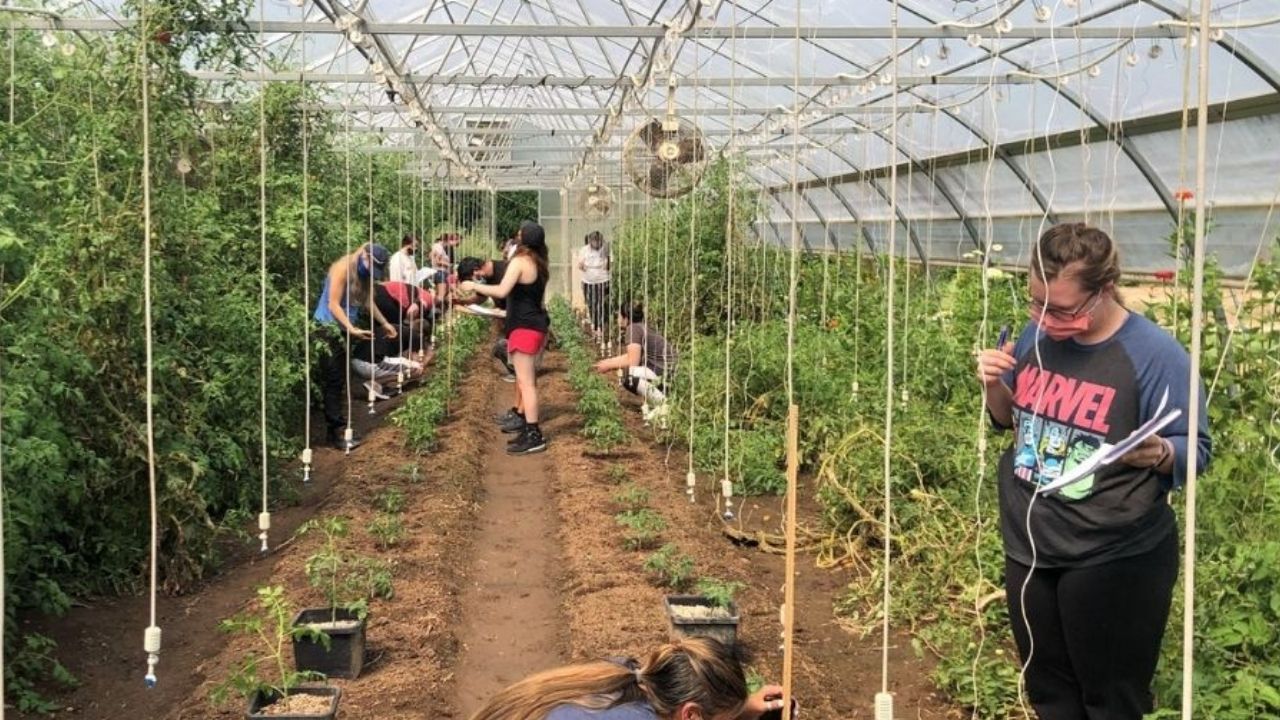
-
Semi-Automated Mushroom Production
In 2017 alone, mushroom sales accounted for more than $1.2 billion in U.S. economic
impact with over 929 million pounds produced according to the American Mushroom Institute.
Yet these spore-bearing fruiting bodies of fungi, known for their nutritional and
medicinal properties, are still underutilized.
Dr. Chris Cornelison and Dr. Kyle Gabriel of KSU's BioInnovation Laboratory are trying to change that trend by leveraging technology to optimize high growth yields and varieties of this crop in Georgia.
They recently were awarded a Georgia Research Alliance venture development grant to study the commercialization of growing mushrooms on regional agricultural waste
substrates.
-
Forensic Anthropology Field Lab (FAFL)
The mission of FAFL is to provide opportunities in research, training, and service related to forensic
anthropology and related disciplines. Our field lab includes a variety of open, wooded,
and underground environments to facilitate cutting-edge research and training in clandestine
grave recovery.
The FAFL is part of KSU’s Skeletal Variation Research Group, which also includes the Bone Biomechanics Lab. These resources are available to students, researchers, and law enforcement agencies.
Training courses for law enforcement and medicolegal professionals will begin in fall
2020.
Please contact FAFL Director, Dr. Alice Gooding if you are interested in research collaboration or professional development opportunities.
Click here to read more on how Dr. Gooding connects her profession as a state forensic anthropologist
with academics at KSU.
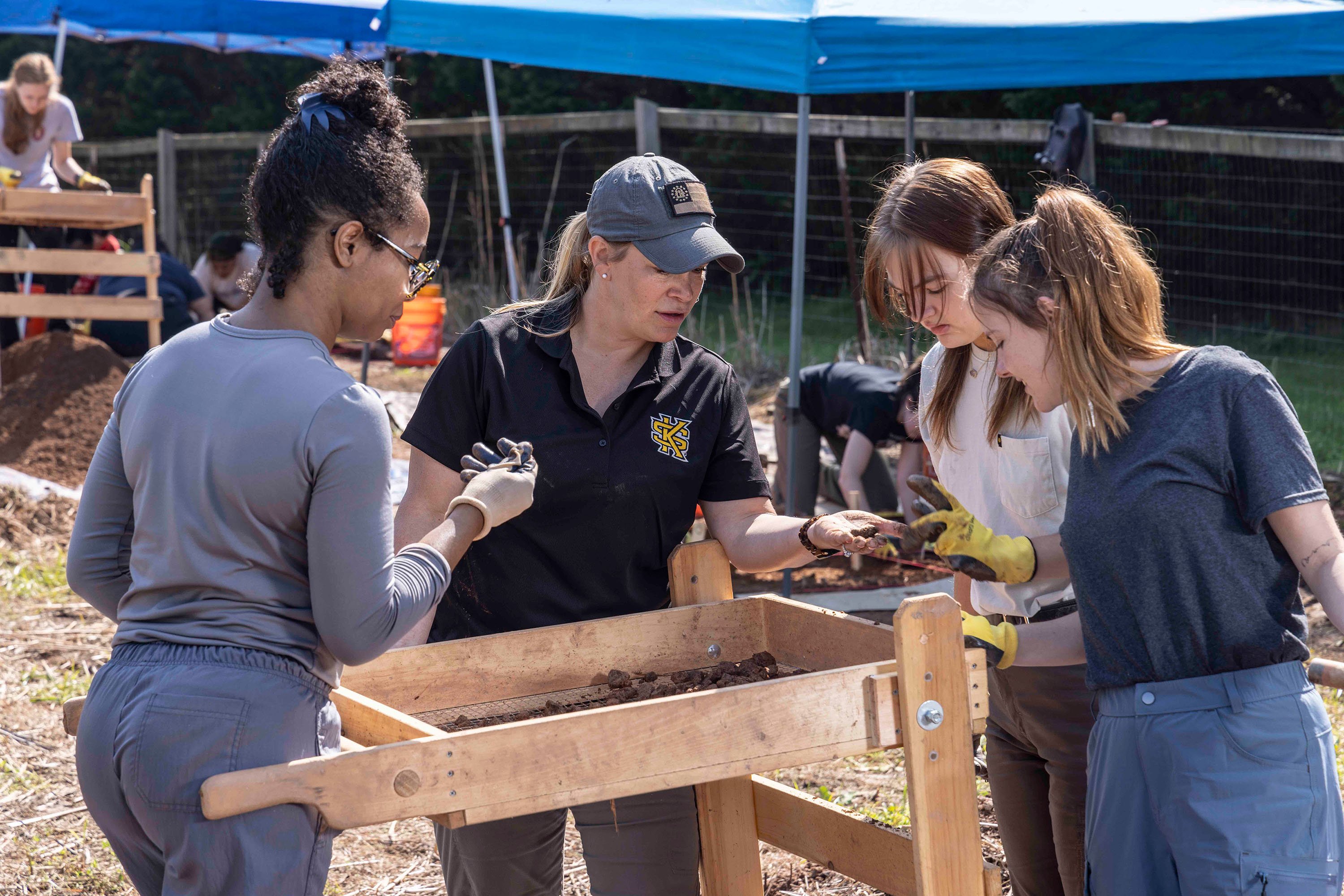
-
Urbanization and the Impact on Starlings
Urban environments can offer increased opportunities for wildlife—such as new types
of food or shelter—but also new dangers. Building sustainable cities will require
understanding how urban living influences animals, including both the benefits and
costs that come with life in these novel environments. At the Kennesaw State University
Field Station, the Guindre-Parker lab is exploring how urbanization shapes the behavior and physiological health of birds.
Dr. Sarah Guindre-Parker and students from the Department of Ecology, Evolution & Organismal Biology have established a colony of nest boxes, which will allow the team to monitor behavior
and reproductive success in an urban agricultural setting relative to purely urban
or purely agricultural sites.
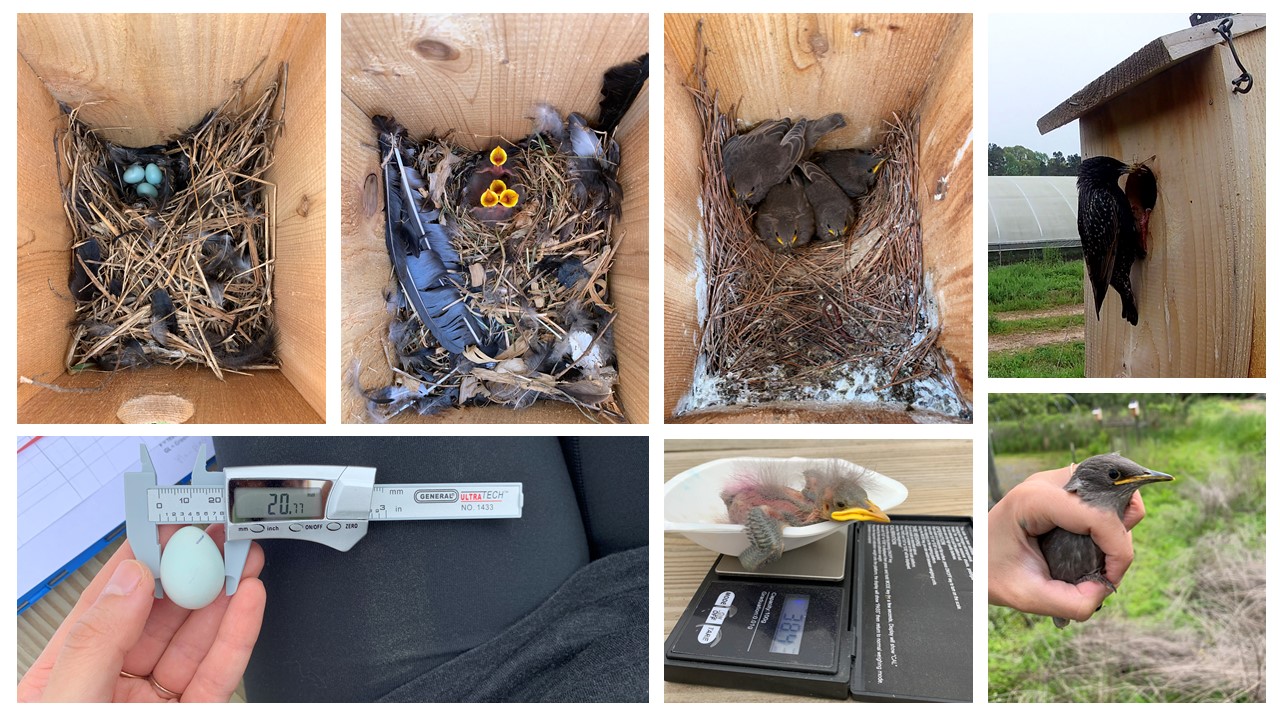
-
American Chestnut Tree Restoration
The surprising discovery of two wild American chestnut trees at the KSU Field Station was the catalyst for
a new area of research in conservation. Field Station Operations Manager Michael Blackwell and Dr. Kyle Gabriel received a grant from The American Chestnut Foundation (TACF), which originally confirmed the identification of the trees through genetic testing.
Their grant is to explore innovative biotechnologies to improve the survival of laboratory-propagated
American chestnut plantlets developed for disease resistance. They have also just
started a collaboration with TACF to plant a blight-resistant American chestnut orchard
at the Field Station for future restoration efforts.
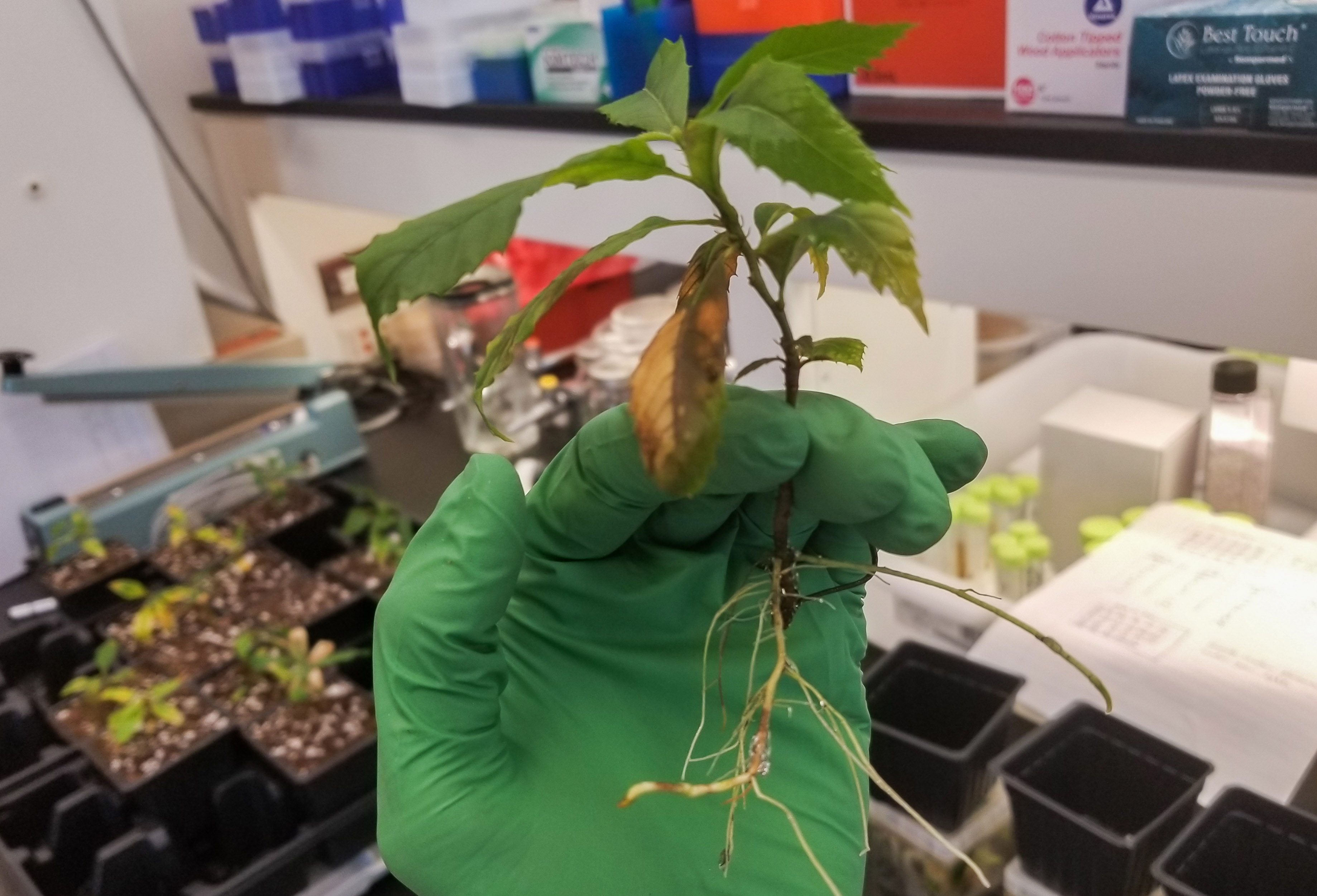
-
KSU Food Forest
The KSU Food Forest, in development on a 1/3 acre of land at the KSU Field Station,
(highlighted in yellow in aeriel photo below) will serve as a model of sustainable
urban cultivation, and demonstrate the potential of food forest systems to mitigate
climate change and promote food security and health. The KSU Food Forest project was
created by geography professors Dr. Jason Rhodes and Dr. Vanessa Slinger-Friedman,
along with Michael Blackwell, operations manager of the KSU Field Station.
Food forests are designed to mimic a natural forest ecosystem and provide a model
of sustainable cultivation. Unlike a community garden, which is typically planted
in annuals, a food forest is a planned ecosystem of complementary edible, perennial
plants with multiple layers.
Follow the project on Instagram @KSUFoodForest.
